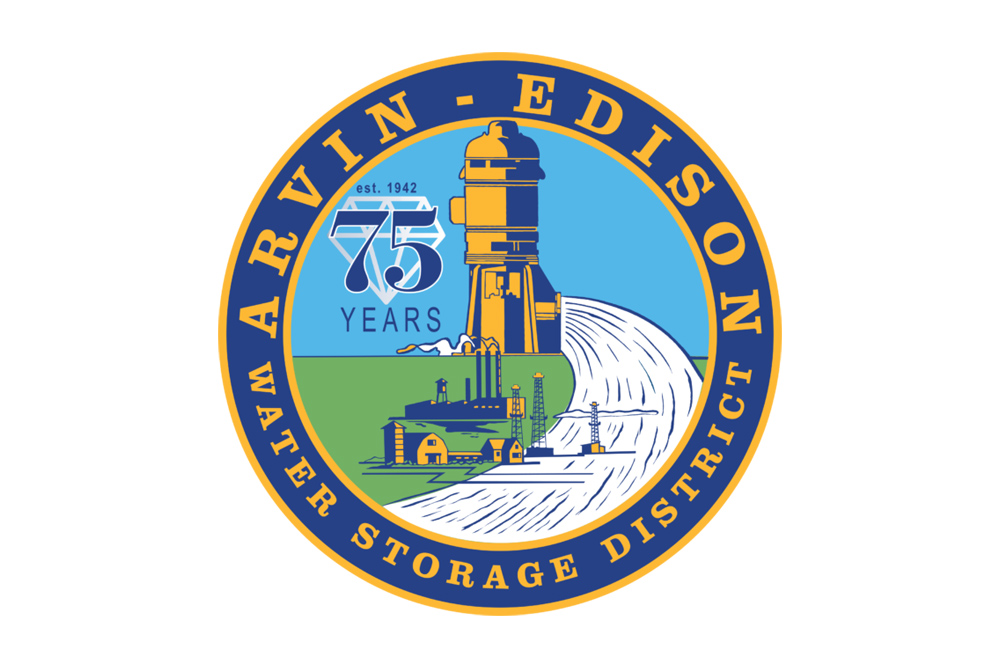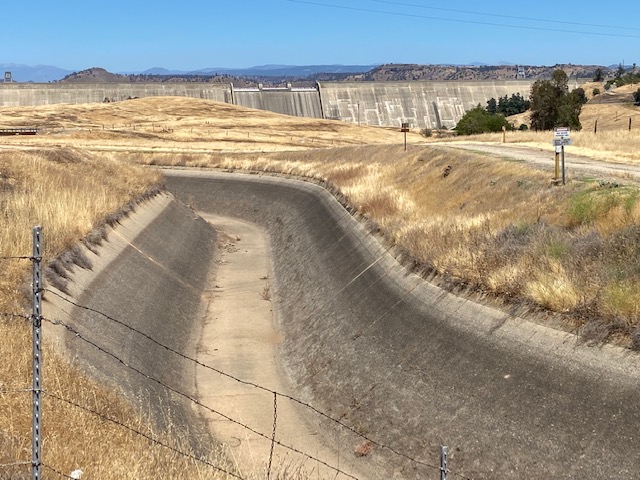As scheduled, the Madera County Board of Supervisors acting in their capacity as the Board for the three GSAs in the county, held a public hearing on June 21, 2022. The hearing was a “218 requirement” to allow public objection before the Board could approve per acre fees to become effective July 1. The fees are set for five years designed to create funding for projects specified in the GSPs in each subbasin – Madera, Chowchilla and Delta-Mendota.
The rates that had been proposed for approval in the 218 vote are:
Madera Subbasin – $246 / acre; Chowchilla Subbasin – $203; Delta-Mendota – $138
During the four-hour meeting, 21 people, nearly all local growers and farmers, spoke against the imposition of the per acre fees. Four individuals with organizational ties spoke in favor. When the total ballots were counted at the close of the hearing, the rates for the Madera Subbasin were narrowly approved but the Chowchilla rates were defeated. Here are the tallies:
Madera Subbasin were narrowly approved but the Chowchilla rates were defeated. Here are the tallies:
Madera – 945 owners notified; 473 required for decision (50 percent plus 1); 442 opposed
Chowchilla – 264 owners notified; 133 required for decision; 171 opposed (rates defeated)
Delta-Mendota – 12 owners notified; 7 required for decision; 2 opposed
To conclude the meeting, the four supervisors present approved the implementation of the fees in the Madera and Delta-Mendota subbasins. As the meeting adjourned, it was unclear what would be the impact on the Chowchilla GSP… more to come!
The Meeting/Staff Presentation
Calling the meeting to order at 10:30 a.m., Brett Frasier served as president pro-tem in the absence of Supervisor and board chair Tom Wheeler who has health issues. Also present in person were Supervisors Leticia Gonzalez and Robert Poythress. Supervisor David Rogers attended on Zoom. The meeting opened with a presentation by Stephanie Anagnoson, Madera County Director of Water and Natural Resources. She gave a short overview of how these plans had been made over five years, emphasizing that grant funding of over $14 million had been obtained to develop the necessary Groundwater Sustainability Plans (GSPs), including a rate study to determine the fees to fund the required projects. The projects include groundwater recharge to capture overflow water in wet years, payments to property owners to take land out of production, domestic well mitigation programs to assist homeowners as water tables fall, and participation in the Sites Dam project planned for construction in the Sacramento River Valley which might bring in up to 10,500 AF per year. The rates being proposed had been developed by the Raftelis consulting firm which analyzed the costs and investments needed for each of the three subbasins. She said using the transitional water allocated and the sustainable yield water available, the rates equated to about $100 per acre-foot in the Madera Subbasin. Anagnoson said all this work had been done with input from property owners, growers and their organizations and citizens groups along the way.
Anagnoson said because fees for services were proposed, affected property owners had been notified using the official county tax rolls in accordance with Proposition 218 which requires that landowners be formally allowed to object. (No response is considered a positive vote.) Notices and a tri-fold informational brochure had been sent twice, in some cases to both the mailing addresses and the parcel locations. The rates being presented are the cap and cannot be increased. The first charges now will be shown on tax statements this fall. Charges will be split between fall and spring tax notices.
Anagnoson said there are two futures in front of you. If rates are passed, the county can operate as a district with funding to help domestic wells, more certainty as to costs while keeping state out as we maintain protection of agriculture through local control. If the rates aren’t approved the county will simply operate as an agency with mandatory water allocations and penalties.
Questions
The meeting then moved to comments from the supervisors. Poythress said that while this program equates to $105 per acre foot, he had recently enrolled to receive Madera Irrigation District water for $225 / AF and was happy to do so. He said Madera Pumps crews were on his property lowering two wells because of declining water tables. He said he was concerned to see misleading information in a mailing he had received from opponents of the program. He said the fee was referred to as a “permanent tax.” He asked for and received confirmation from Anagnoson and Kevin Kostiuk of Raftelis that the rates can be reviewed every five years and could be lowered at any time if circumstances allow.
Supervisor Gonzalez asked if a landowner’s property was annexed into a water district, would the fees still apply. The response was since the property would no longer be in the GSA, no fee could be charged.
Supervisor Frasier had several questions regarding the costs calculated for projects in different categories, recharge basins and Sites dam and what specifically would be accomplished. He asked that the spread sheet in the rate study be projected on the screen for viewing by those in the room and on Zoom. After a few minutes to get this done, Raftelis’ Kostiuk said the projects in the Madera Subbasin are projected at $20 million per year with a total of $100 million for the first five-year period. Because fewer projects are being done, Chowchilla would be about $7 million per year for five years and Delta-Mendota even less.
Here, the meeting was opened for public comment. (Editor’s note: many speakers did not introduce themselves, but we obtained a handwritten list of those signed in. Even so, there may be errors in spelling or proper connection of names and comments. Even if the attribution is not absolutely correct in every case, the tone and tenor of the comments are valid.)
The Public Speaks
A representative of Russell Harris Enterprises and farming operations first complimented the staff for a job well done on a controversial and emotional issue. He said he had concerns about how the vote was being handled. He said the ballots said they should be returned with a deadline of June 20, the day before this meeting, but that was a postal holiday, and he said the county offices had been closed. He said a third party administrator should handle the vote count. He said the fee would remain in place beyond five years unless the county took action, which he said was “problematic.”
Next was local grower Ralph Pistoresi who was very animated, seeming to feel he had so many complaints about this that he didn’t know where to start. He said call it a fee, but it really is a tax, levied per acre with similar penalties for late or non-payment. He went on to say that farming is the art of the possible and this amount of added cost makes farming impossible. He said there was still lack of awareness on the part of farmers and that many had thrown away the mailing from the county thinking it was junk mail. He said property rights are involved and that he’s not getting any new water for this tax. He drew a roomful of applause from the 75 or so attending when he concluded asking the supervisors not to start charging people this amount of money.
impossible. He said there was still lack of awareness on the part of farmers and that many had thrown away the mailing from the county thinking it was junk mail. He said property rights are involved and that he’s not getting any new water for this tax. He drew a roomful of applause from the 75 or so attending when he concluded asking the supervisors not to start charging people this amount of money.
Jean Kopshavan opened by asking how many had lived through the Great Depression like she had, saying she expected she was the oldest person in the room. She recalled when she and her family survived on flour and water pancakes. The water was free, but we had to buy the flour, she said. She continued saying this tax will destroy us and she has been farming all her life, today with olives, oranges and cattle. She said, “I don’t know if you people know what you are doing to us… I’m really upset. We’ll all be broke.” She said already she couldn’t afford chemicals, taxes, and the help so she didn’t know how she was going to pay this.
Francisco Sanchez, also a local grower, asked if children could have a future in farming since the taxes won’t go down in five years. He asked what are people going to do if they stop seeing fresh fruits in stores from California Grown. He said to the supervisors that you are supposed to be protecting us. He said, I’m a veteran and we are not lambs to be corralled. He warned this can get a whole lot worse than just sitting here and talking about it.
Jasbir Singh Sidhu said he represented the Punjabi American Growers Group with 250 members farming 100,000 acres in Fresno and Madera Counties. He said his members had not been aware but, in the future, he would work to inform them. He said farmers are being pushed to the wall with high costs and low commodity prices. He said many things to help were supposed to be implemented with SGMA, but none had been done. He said rethink this program.
A mother with a young child, Tera Pitman, said she was a fourth generation farmer, and she hoped her daughter would be the fifth. She said she and her family farm only 700 acres and their annual farm budget is $1 million. This new fee will be $780,000 and they don’t know where the dollars will come from. We can take our land out of production, and you can pay us $40,000 but then that’s a million dollars taken out of the county economy. We are opposed to it, she concluded.
Devin Aviles a grower and local cooperative representative said he was speaking in support. He told the supervisors you did not ask for this job which was forced on you by the state. If we don’t get funds to support this subbasin, we will only be left with Sustainable Yield water. Totaling the fee plus cost of pumping, he said how many water districts do you know which will pump at $400 / AF for the next five years? He answered, none. He urged support saying, “We need to get stuff built so we can capture the flood waters that are coming.”
Joseph Gallegos, a local grower, took a slightly different tack. He said that old infrastructure and old approaches are outdated, dams and catch basins. They are expensive and take time as well as ongoing maintenance. He urged that new technology be investigated to use water more efficiently, referencing his ability to grow almonds on 10 inches of water per season. He urged the board to recalculate using the latest technology.
Grower James Witmore said that all he’s heard is that we are going to capture all this water. What water, he asked. He said the San Joaquin River floods once every ten years, so there is a little water once in a while that goes to environmentalists, indigenous people and everybody else. He said this is a well-intentioned but mis-managed approach. It’s an ill-conceived paper project that takes millions of dollars.
Dairy farmer Larry Pietrowski whose operation is west of Madera said that he appreciated there had been outreach to dairy farmers. He had started his dairy in 1995 and the size of his herd is directly related to the amount of ground he farms due to regulations governing manure. If he has to take land out of production, he’ll have to cut down on his herd size. The fee will add $1 million to his costs and those dollars are not in his milk tank. He will have to consider closing his dairy, jeopardizing 90 employees.
Coming from a different perspective, Minesh Kher said he had been a software engineer and manager in the Bay Area until he bought his farm five years ago. He said let’s start by calling a spade a spade… it is a tax. Government provides services for taxes and that’s what this is, but you don’t know what you’re getting in this case.
Jack Rice who represents “white area” growers in the Madera Ag Water Association, MAWA, agreed that SGMA had made it painful for communities through California. He knows public entities and private landowners have been working since 2015, but we have an imbalance, and the state requires we have to deal with it. While it’s difficult and expensive, we have to manage the basin sustainably, he said, with local control. He encouraged support of the plan because the fees are what it costs to keep the state out.
Steven Pistoresi, nephew of Ralph who spoke earlier, said he has responses from landowners he contacted who sent him their wish to vote no, even though he said they had not been contacted by the county. He went on to cite the flooding of the San Joaquin River in which they almost lost their ranch, pumping water back into the river. He said it doesn’t matter how much we store because they send it down the river at the same rate. He said the supervisors should consider that farmers are using the water for beneficial purposes, converting water to food.
Matt Nouici (spelling?) said his family had been farming in the county since 1909. He said you aren’t receiving anything for the fee. The environmentalists are taking all the water away from farmers. We should have saved water back in 2017. We don’t have water behind those dams because they are releasing it for fish. We need to think this thing through to bring in more water to give to farmers to keep them going.
Speaking in support was Sarah Woolf, a grower in Chowchilla and an industry consultant whose firm manages a local water district, Triangle T. She said she agrees with Jack Rice that many have worked together to try to find solutions which are now in the rate study. She supports the study and the 218 proposal because everybody is participating to get solutions on the ground to end the overdraft. She received a bit of applause as she concluded.
Joseph Mant said he was from the Sacramento area but was concerned here. He named two water fees applied in the past that he said have never gone away. He said six dams are being closed. “Someone has to do something about storage,” he said. He went on the say that big data centers actually use the most water, some up to four million gallons a day, which they don’t pay for.
Speaking next was Christine Beckstead, executive director of the Madera County Farm Bureau. She thanked Anagnoson and others involved for their work. She said “Our goal has been to keep farmers farming in this county. We’ve been at the table during these trying times. We’ve done our best to be the voice for farmers.” She urged farmers to take their message to Sacramento and Washington DC.
Ken Bowman, a Madera grower, urged folks to get on the phone with your Assemblyman and Senator. He said this is an 18% increase in our expenses. He said we need to address this water system, subsidence and so forth but can this plan be scaled back to take small steps before we start running.
At this point it was after 12 noon and Chairman Frasier called for a short recess, coming back to order about 12:30 p.m. Ralph Pistoresi led off. He said that the $245 rate for Madera was just the beginning of the costs since the penalty for exceeding allocations could be as high as $1000 / AF. He said if you can’t stay in business in the present, there is no future.
Alex Neiman (sp) said he was a farmer and a schoolteacher. He said the supervisors should “man up” and push back against the state. Apparently, a religious man, he offered a prayer that God would deliver the vital water.
A woman grower, Veerpd Sidhu, spoke next saying in the past nine years nothing has been done and farmers are getting beat up. She said the county should work together with the Madera Irrigation District but instead they are fighting each other.
Grower Hank Griffin said we ignore this at our peril. The state wants groundwater to be brought into balance and I want that too. But with the Delta pumps shut down, MID can’t provide enough water so we keep pumping. We won’t play ball if the state doesn’t do its part.
Ryan Jones said that the enviros get water from the San Joaquin River for free for a project (fish restoration) that has failed. He said the $246 fee is way out of line. Why can’t we get more water from the agency when we have been begging for 40 years.
At this point Chairman Frasier invited anyone with a 218 ballot to come forward and give it to the clerk before the hearing was closed. With no mail the day before, there was discussion about whether USPS had made its delivery to the clerk’s office that day.
Meanwhile more individuals had indicated their wish to speak. Howard Jaquith, local grower, said today he’s drilling for his water at a depth of 1000 feet. But he said the proposed plan is misguided in that there continues to be more residential development in the county, with apparently no restrictions and no charge for the water. He said water in the county knows no boundaries and GSAs and water districts should not be pitted against each other. He said the plan should be county-wide taking into account needs for residential, industrial and agricultural.
Ralph Pistoresi returned to the podium drawing a chuckle when he said he was now speaking during the Chowchilla portion of the session. One point he made was that this plan was taking water from certain individuals without compensation.
Makhan Singh explained he had been a physicist before becoming a farmer reminding everyone that all eat what farmers produce. He said all the input costs are going up while commodity prices are coming down. He asked if housing developments are being charged when they are located to interrupt natural recharge.
Young farmer Shaan Thandi also agreed that farmers face rising costs and this additional tax handicaps our ability to take care of our families. He said the fee will put farmers in a deeper hole in the present for the “vague hope” for more water in the future. He said the fee is essentially indefinite and is concerned about the precedent. He said the plan should be adjusted so it is less immediately severe.
Dairyman Pietrowski was the final speaker saying his land lies across both subbasins. He said he was very frustrated that the state has done nothing; action from Proposition 1 never materialized. He concluded by asking how the county would deal with lower tax revenues when land is fallowed.
There were no speakers for Delta-Mendota, so the vote totals were announced as detailed above.
The Board’s Response
Supervisor Frasier offered a heartfelt message acknowledging the difficulties but saying the board had tried to put together a plan that offered a more gradual glide path in the reduction of water use. He said he doesn’t want his descendants 100 years from now to look back and say we did nothing. Supervisor Rogers was recognized online and spoke for 15 minutes saying that without the plan, you have to cut pumping immediately. With the plan, growers can use transition water for years into the future. He said we won’t be a farming county if there is no water. He also said he didn’t appreciate hearing what he called a threat.
When invited to comment by the chair, Supervisor Poythress said there was nothing left to say. He moved the approval of the fee program for the Madera subbasin. It was approved by a 4 – 0 vote as was the Delta-Mendota plan a moment later.
And with that the meeting adjourned at 2:30 p.m.
DISCLAIMER OF RESPONSIBILITY; Waterwrights strives to provide clients with the most complete, up-to-date, and accurate information available. Nevertheless, Waterwrights does not serve as a guarantor of the accuracy or completeness of the information provided, and specifically disclaims any and all responsibility for information that is not accurate, up-to-date, or complete. Waterwrights’ clients therefore rely on the accuracy, completeness and timeliness of information from Waterwrights entirely at their own risk. The opinions expressed in this report are those of the author and do not represent any advertisers or third parties.
ALL RIGHTS RESERVED. Copyright 2020 by WaterWrights.net
Madera County is comprised of three subbasins, designated by the CA Department of Water Resources as critically overdrafted, and “high priority”: (1) the Chowchilla Subbasin; (2) the Madera Subbasin; and (3) a portion of the Delta-Mendota Subbasin. Each of these subbasins submitted a Groundwater Sustainability Plan (GSP) by January 31, 2020. These subbasins are required to achieve “sustainability” by the year 2040. The method by which sustainability will be achieved will be illustrated in the GSP, which was be drafted in partnership by the irrigation district, water districts, cities and Madera County. The Madera County Groundwater Sustainability Agency (GSA) is administered by the Madera County Department of Water and Natural Resources: Stephanie Anagnoson, Director, 200 W. Fourth Street, Madera, CA 93637, (559) 675-7703 x. 2265 or (559) 675-6573. The County of Madera Board of Supervisors is the Board of Directors of the GSAs for the three subbasins. The current board is composed of five members: Tom Wheeler, Chair, Brett Frazier, Leticia Gonzalez, Robert Poythress and David Rogers.

































